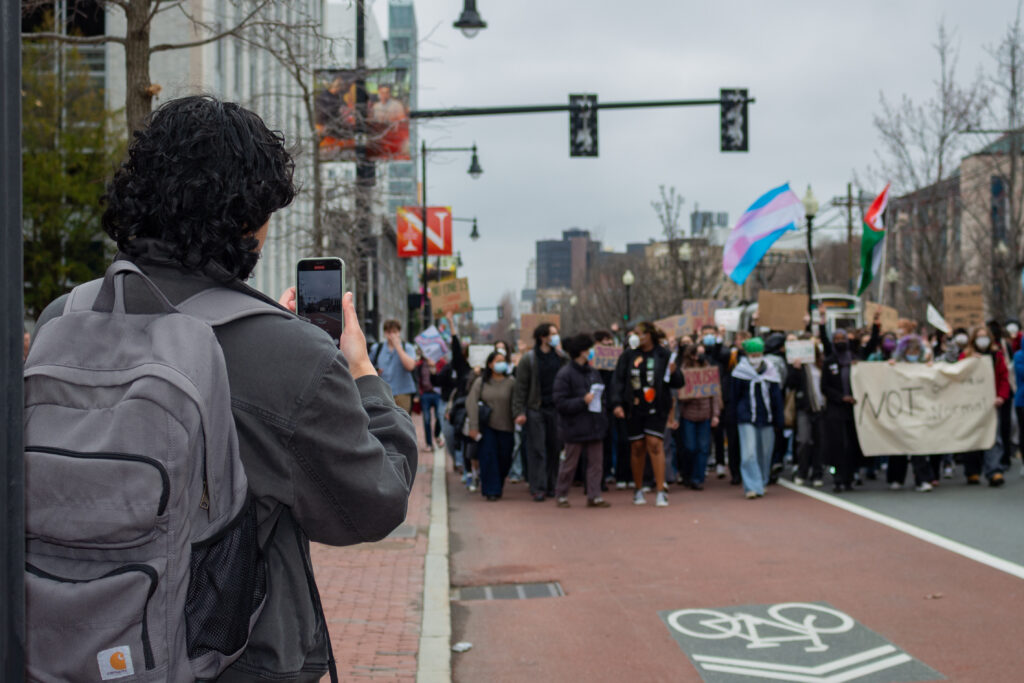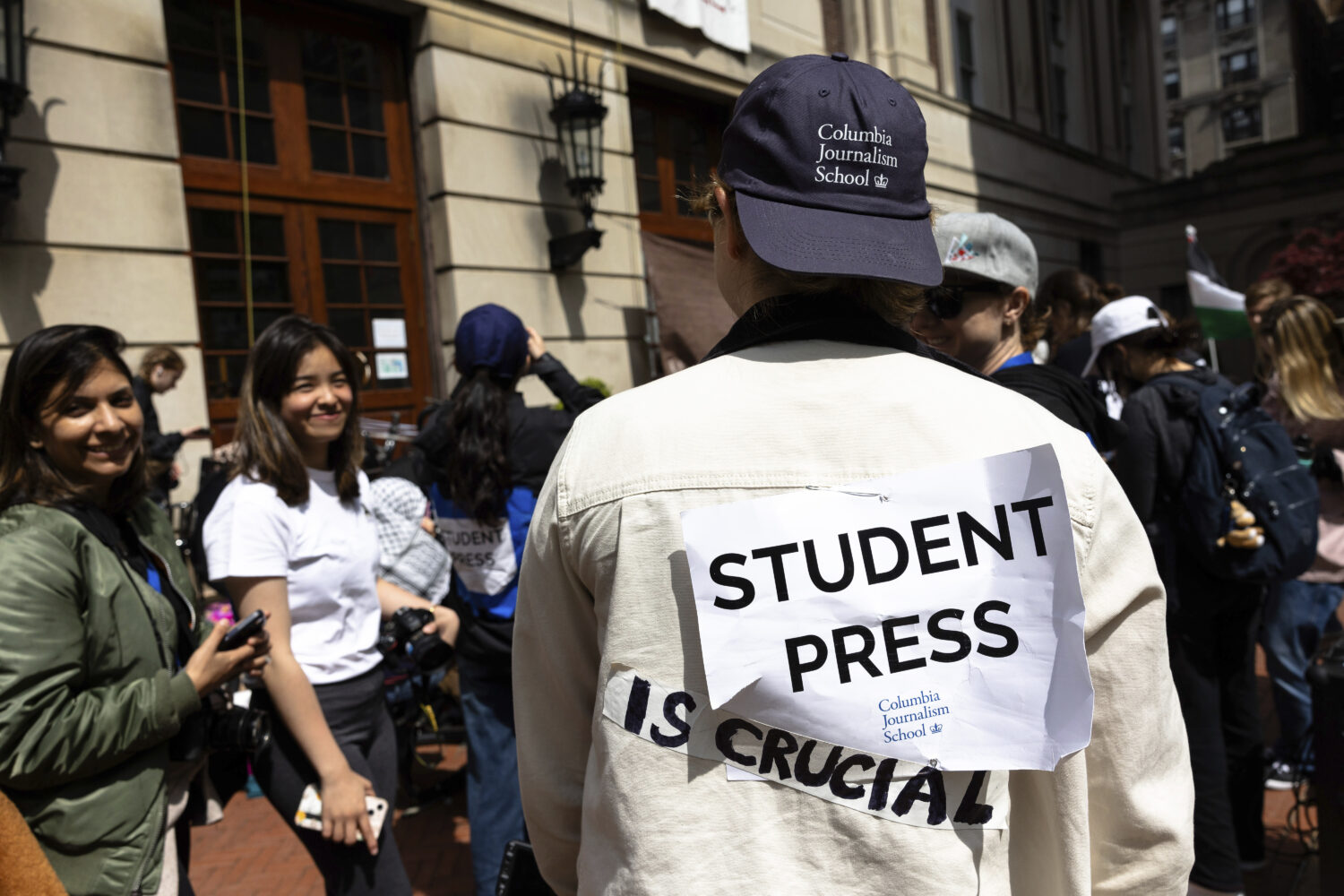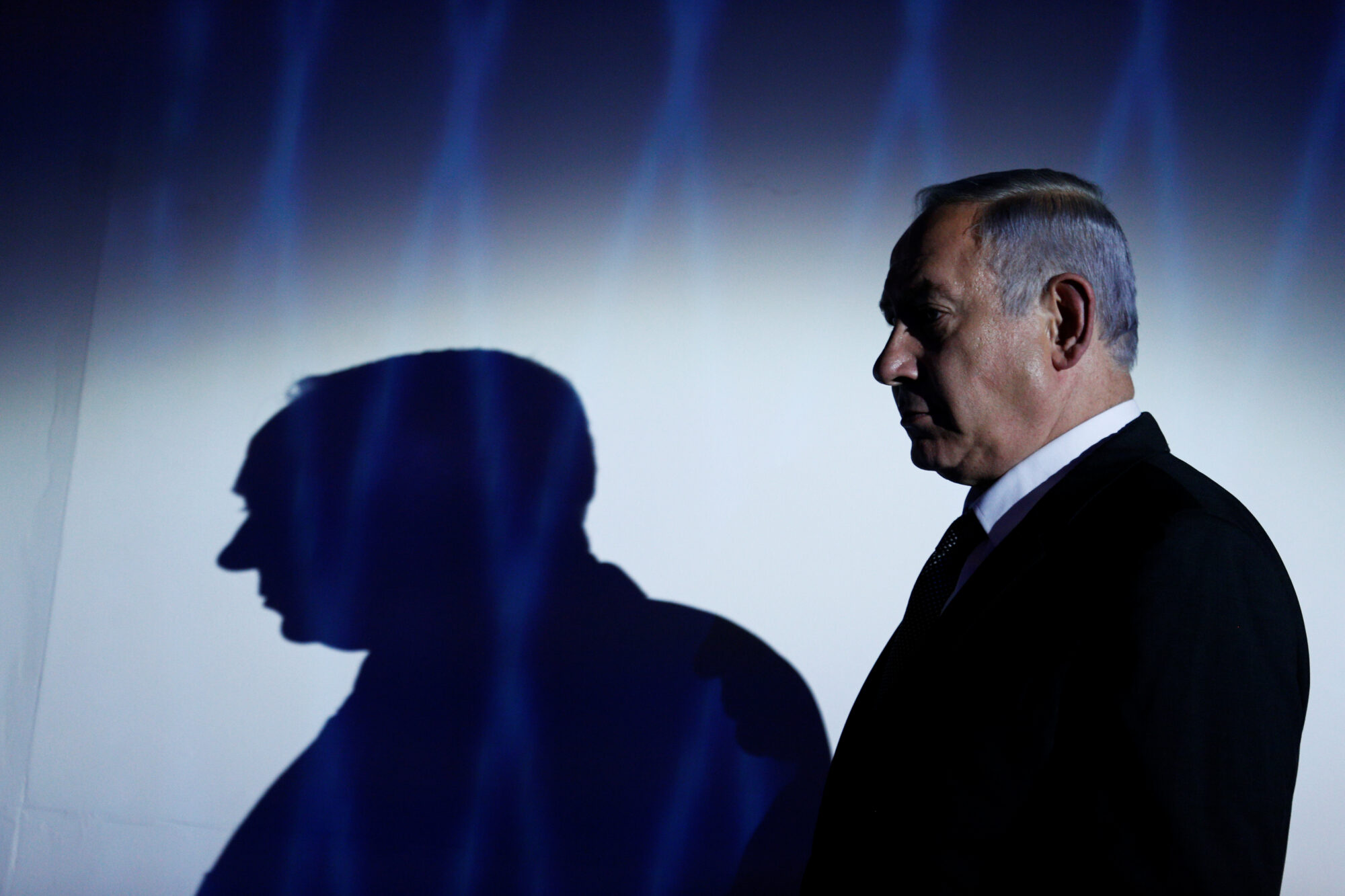Sonel Cutler had seen her fair share of sensitive stories. A senior at Northeastern University in Boston, she had reported on the fallout from Hamas’ Oct. 7, 2023, attack on Israel for the campus newspaper, and led it through coverage of a pro-Palestinian encampment that culminated in nearly 100 arrests.
But as the Trump administration began its crackdown on international students associated with pro-Palestinian campus movements, Cutler faced a new challenge: an influx of requests from worried students that The Huntington News anonymize quotes, remove photos and take down some articles entirely for their safety. In her final two weeks as editor-in-chief at the beginning of April, Cutler granted at least four takedown requests, she said, after removing only one from Google Search results during her previous 12 months at the helm.

“Now it’s just reached a new level of people being scared to speak out, either about the school or about how policies are affecting them, because they’re scared of getting deported or having their visas terminated or having the school retaliate against them,” Cutler said.
As at professional news organizations, editors and reporters at student publications are normally taught to grant anonymity sparingly, and to alter or remove published material only in the most extreme cases. But the wave of student visa revocations under Trump — as many as 1300 so far, according to Inside Higher Ed — has prompted student newspapers to reconsider, and in many cases modify, their practices in response to what some say is an unprecedented attack on the First Amendment.
Many editors on college campuses are following guidance issued April 4 by a group of journalism advisory organizations, including the Student Press Law Center and the Associated Collegiate Press, urging student news organizations to ease their anonymity and takedown policies in response to the visa crackdown.
“In our bylaws, it says anonymity and takedowns are really only supposed to be given when there’s a serious threat of harm or to the safety of the author,” said Zhane Yamin, co-editor-in-chief of The Michigan Daily at the University of Michigan. “If not now, then when would we realistically use this?”
In recent weeks, Yamin said, the paper has retroactively anonymized two articles written by international students.
But loosening strictures on anonymity and the deletion or alteration of published material carries its own dangers. Overreliance on anonymous sources can pose legal risks or jeopardize a newspaper’s credibility, Mike Hiestand of the Student Press Law Center acknowledged.
Still, the serious threat that constitutionally protected speech is now facing means journalists must play by “an entirely new set of rules,” said Hiestand, the center’s senior legal counsel.
“It’s our job at this time as journalists to make sure that we are talking with and hearing from the people that are most impacted by these new [government] policies and by what’s going on,” Hiestand said, even if “the only way to hear that voice is to provide them some level of protection that maybe we weren’t in the habit of providing before, under the old rules.”
Yamin said editors at The Michigan Daily were typically “sticklers” about leaving published material untouched and refusing anonymity to students on either side of the debate over the war in Gaza, in order to have a permanent record of what sources or writers were “willing to express in a public forum at the time.”
“That being said, the landscape has changed enough where international students maybe aren’t going to be able to fully complete their education in the United States, or there’s a threat of them being arrested by [Immigrations and Customs Enforcement] if they have their name attached to specific things that they’ve written,” he said.
Cutler said The Huntington News has granted anonymity to LGBTQ+ students and researchers doing diversity, equity, and inclusion-related projects, in addition to international students.
“We haven’t made our anonymity policies any less lenient. It’s just that so many more people are meeting that threshold that we deem is necessary for anonymity now,” Cutler said. “We obviously want to be giving our readers as much information as we can, and be very transparent with them about where everything is coming from, but we still want to protect our sources and the students on campus who are at risk.”
At Columbia University, where the detention of pro-Palestinian activist Mahmoud Khalil by ICE continues to make national headlines, Columbia Daily Spectator editor-in-chief Shea Vance said the federal government’s intense scrutiny has compounded a “chilling effect” on campus ever since Hamas’ assault on Israel. Some pro-Palestinian Columbia students have even had op-ed pieces they wrote for the Spectator used as evidence against them in disciplinary proceedings, she added.
“We want people to contribute to our opinion page like any newspaper, and so it does make that difficult. Same goes for reporting processes. We want to make sure that we’re including as broad a variety of voices as possible in our news reporting,” Vance said. “That can become hard when people are afraid to speak to the media or publicly attach their name to certain positions.”
At The Daily Tar Heel at the University of North Carolina at Chapel Hill, editor-in-chief Laney Crawley said the paper is granting anonymity more readily than before and has acceded to two or three takedown requests from columnists who have immigrant relatives and who have written things critical of Trump.
The editors of The Exponent at Purdue University in Indiana have gone even further: They announced in February that they would remove all names, photos and identifying information of pro-Palestinian students from their published content.
“Of course it’s unorthodox, but the situation we’re in now is unorthodox,” Exponent editor-in-chief Seth Nelson said. “When has the federal government ever said something so blatant as ‘You protest on this issue, you’re under threat’?”
For Cutler, covering the turmoil at Northeastern — which enrolls around 21,000 international students, the second-largest population in the country — made her feel the “heaviness” of the paper’s responsibility toward the campus and her fellow students.
“I’m much more understanding of the harm that media has the power to inflict, and how careful we have to be with that power,” she said. “My understanding is a lot more nuanced: less forgiving of traditional journalism practices, more forgiving of our sources who endanger themselves by talking to us.”
Elias Schisgall is a senior at Harvard University studying Social Studies. He was an associate managing editor at The Harvard Crimson in 2024.



